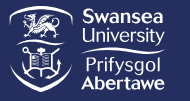The aim of the CELTA qualification is to give you practical teaching experience, as well as exploring a number of techniques to help motivate and encourage your learners. You will also cover all the fundamental principles of teaching English as a foreign language (TEFL) and observe qualified teacher

Course Overview
The aim of the CELTA qualification is to give you practical teaching experience, as well as exploring a number of techniques to help motivate and encourage your learners. You will also cover all the fundamental principles of teaching English as a foreign language (TEFL) and observe qualified teachers in a classroom setting.
Once you have successfully completed this qualification you will be eligible to work anywhere in the world.
Success Criteria
Full attendance of input sessions
Achieving or exceeding the criteria in both practical and written components
Ability to work as a team and to give and receive constructive criticism
Ability to work under pressure
A commitment to attending and completing all components of the course
Bout Swansea University
Swansea University has been producing world class research since 1920. We have a long history of working with business and industry but today our research has a much wider impact, reaching across the health, wealth, culture, and well-being of a global society.
We have achieved an extraordinary level of success in recent years with our research activity exceeding that of many larger universities. This, though, has not compromised the friendly and relaxed atmosphere that has always characterised the “Swansea experience”.
As we continue our journey as a 21st century University, we look forward to becoming a truly global institution, focusing on the big issues, and improving lives, while continuing to provide inspirational teaching.
History And Heritage
The University's foundation stone was laid by King George V on 19 July 1920 and 89 students (including eight female students) enrolled that same year. By September 1939, there were 65 staff and 485 students.
In 1947 there were just two permanent buildings on campus: Singleton Abbey and the library. The Principal, J S Fulton, recognised the need to expand the estate and had a vision of a self-contained community, with residential, social and academic facilities on a single site. His vision was to become the first university campus in the UK.
By 1960 a large-scale development programme was underway that would see the construction of new halls of residence, the Maths and Science Tower, and College House (later renamed Fulton House). The 1960s also saw the development of the "finite element method" by Professor Olek Zienkiewicz.
His technique revolutionised the design and engineering of manufactured products, and Swansea was starting to stake its claim as an institution that demanded to be taken seriously.
Work began on the student village at Hendrefoelan in 1971, the South Wales Miners' Library was established in 1973 and the Taliesin Arts Centre opened on campus in 1984. The Regional Schools of Nursing transferred to Swansea in 1992, and the College of Medicine opened in 2001.
Technium Digital was completed in 2005 and, barely two years later, the University opened its Institute of Life Science, which commercialises the results of research undertaken in the Swansea University Medical School. Work commenced on a second Institute of Life Science in 2009.
In 2012 we began an ambitious campus expansion and development project, including the opening of our Bay Campus in 2015; which is home to the College of Engineering and the School of Management.
In 2018 we opened the doors to two further projects, The College; Swansea University's joint venture with Navitas (The International College Wales Swansea, ICWS) and the Computational Foundry; the home of the College of Science's departments of Computer Science and Mathematics.
© 2025 coursetakers.com All Rights Reserved. Terms and Conditions of use | Privacy Policy